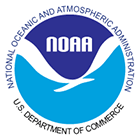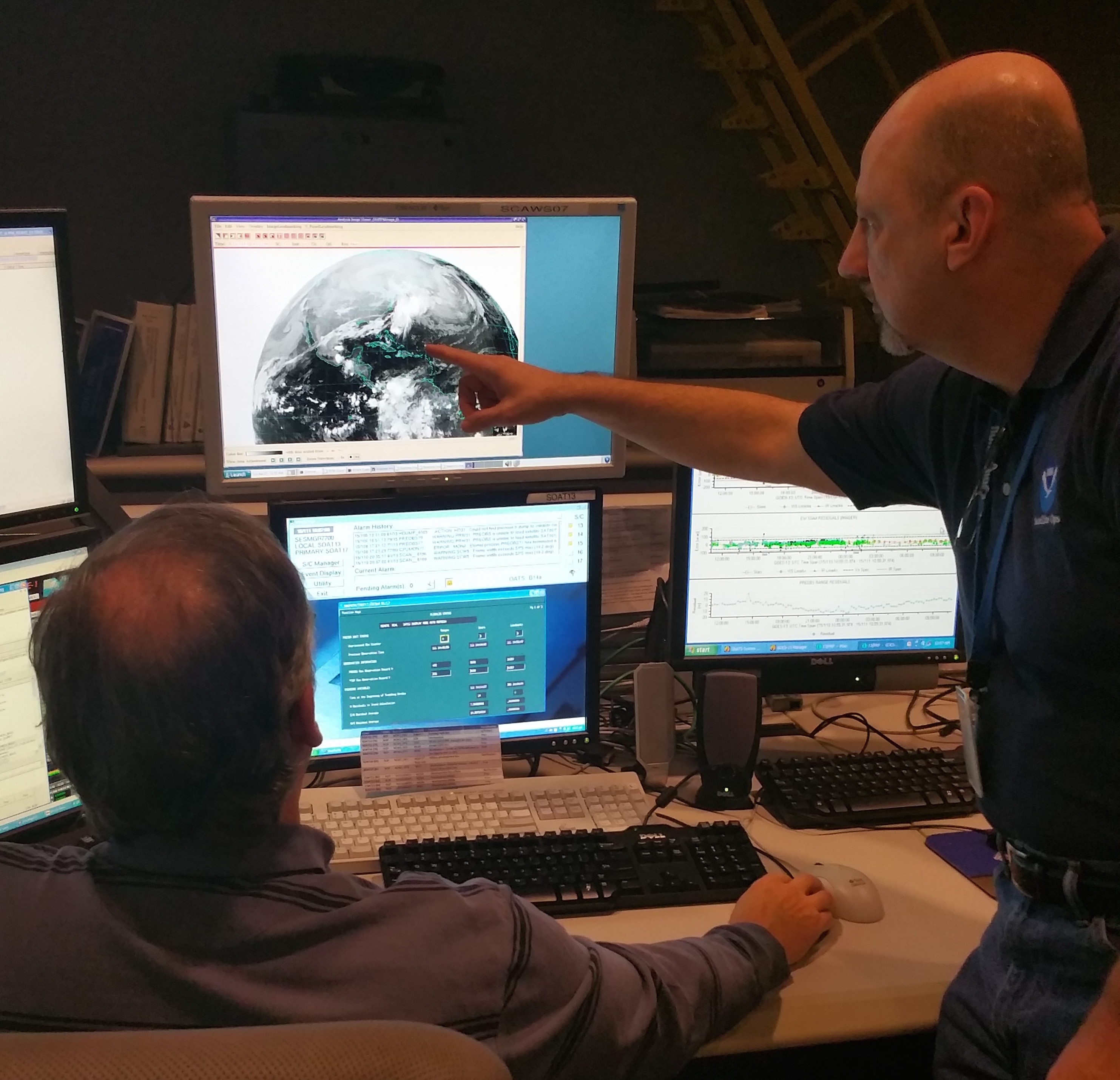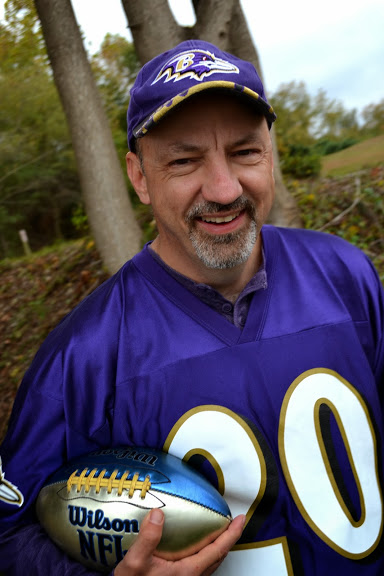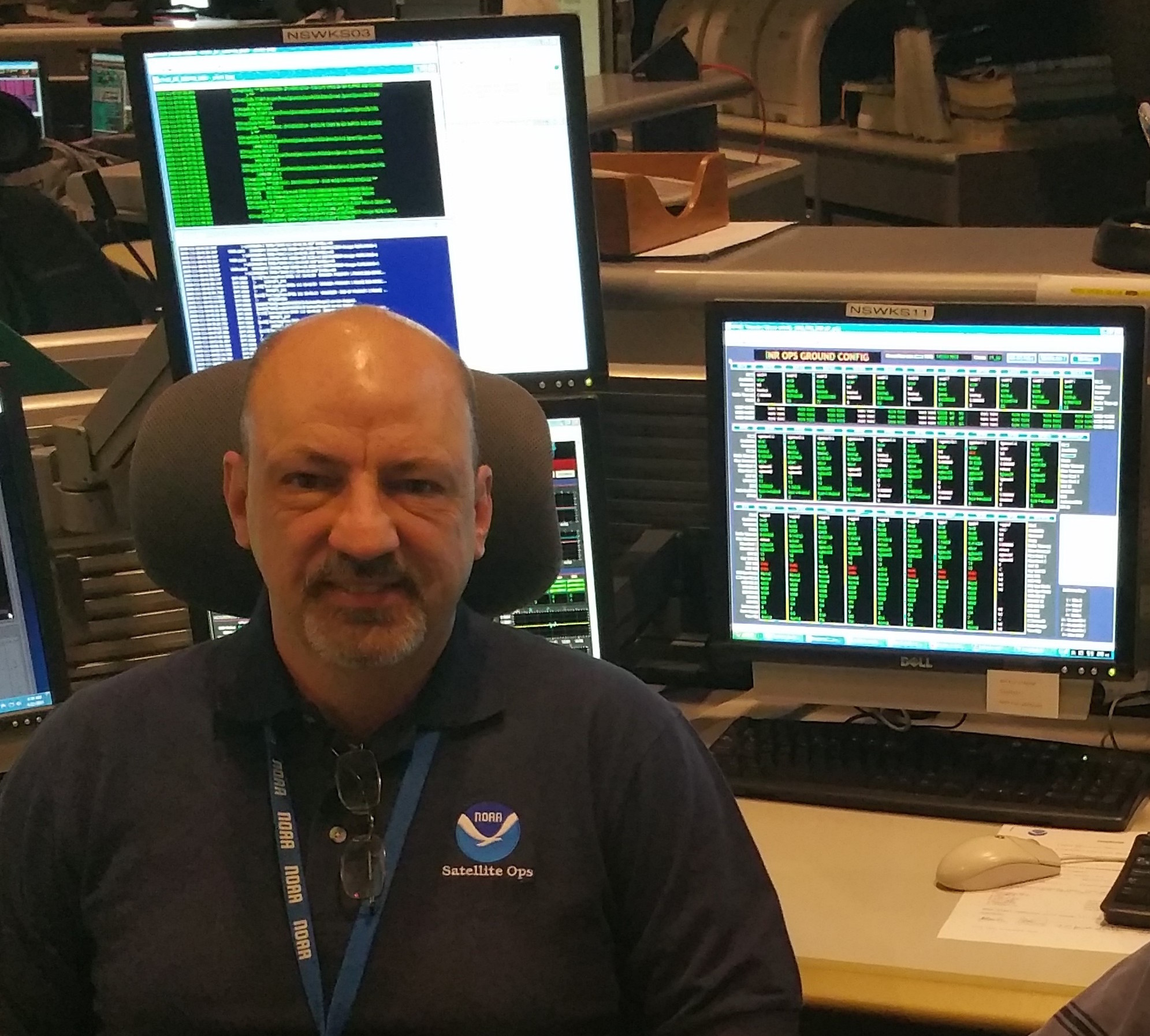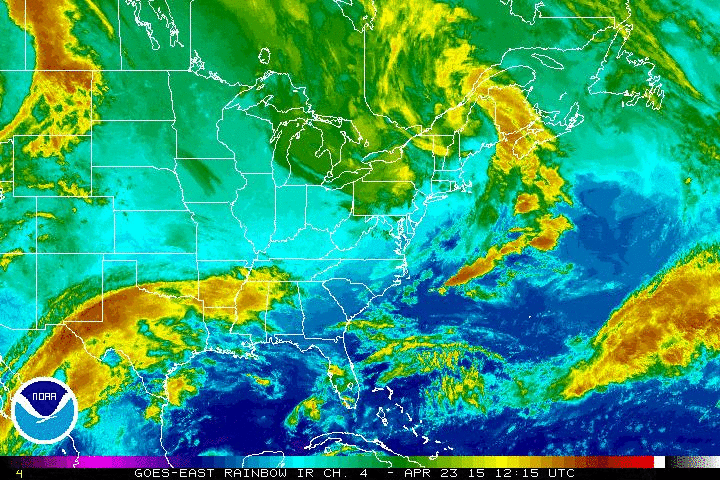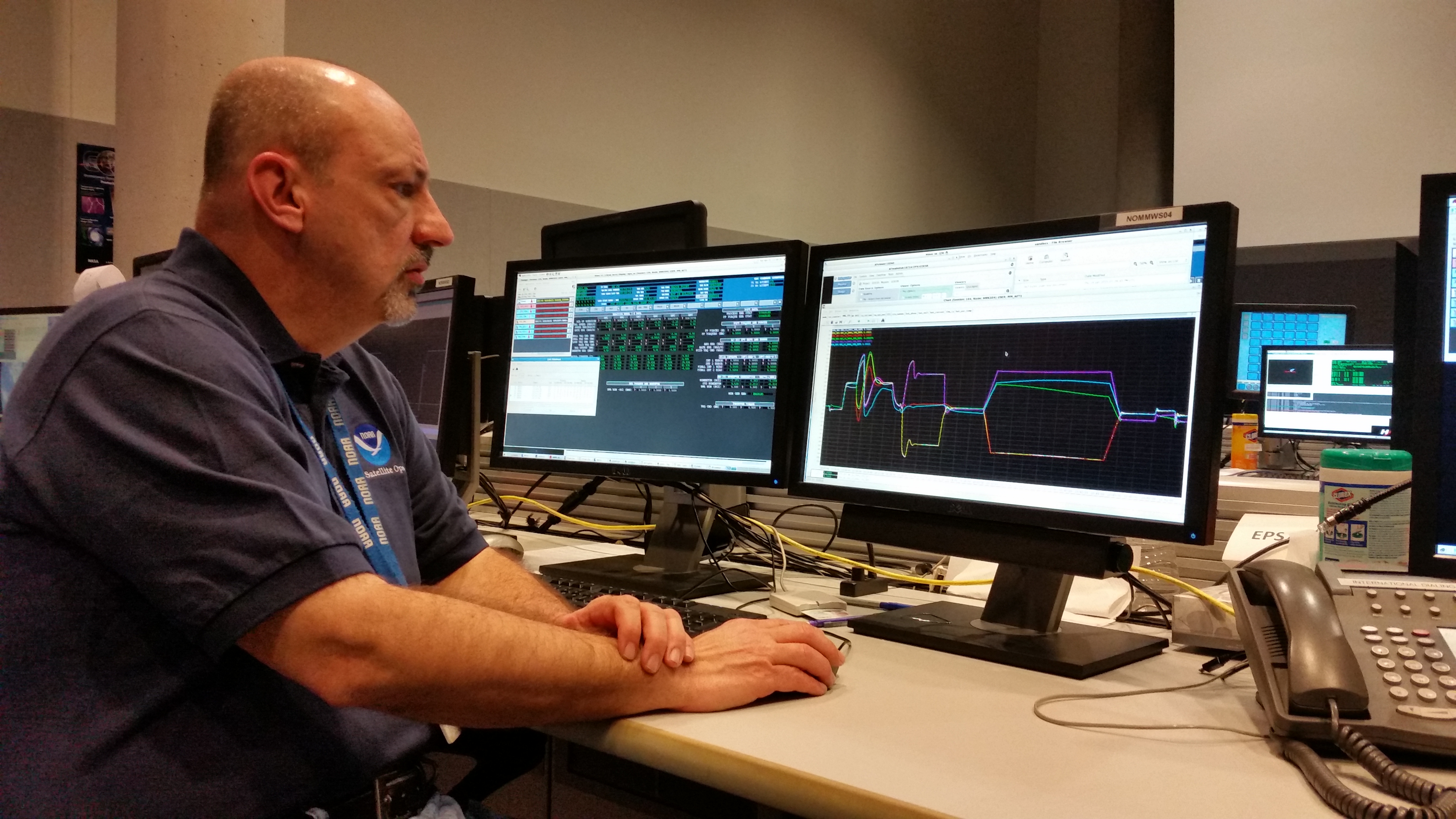What does a weather satellite controller do?
Wild Weather Jobs: Weather Satellite Controller
Imagine controlling a satellite orbiting Earth. Much like a remote-controlled airplane, you send messages and tell it what to do. That’s what weather satellite controller Tom Boyd gets to do every day for the National Oceanic and Atmospheric Administration (NOAA).
An early interest in science
"I have been interested in science, engineering and math since my elementary school days," said Tom Boyd. He remembers being fascinated in first grade by science experiments on magnetism. "And I remember being amazed when learning about atoms and molecules in third grade, which came full circle when studying electronics almost twenty years later."
Boyd didn’t go right into electronics after school, though. At first he was interested in architecture. After six years working in various jobs, he decided to head back to school. He studied electronics and left as a certified electronics technician.
From there, he got a job at Grumman System Support, which is now called Northrup-Grumman. He worked as a computer service technician. Soon he was the lead hardware technician for NOAA’s Satellite Operation Control Center in Suitland, Maryland. It was there that he learned all the skills for a career as a weather satellite controller. He’s been doing it ever since.
"I believe the old clichés about ‘being in the right place at the right time’ and ‘a lot of hard work’ had a lot to do with me becoming a weather satellite controller," said Boyd.
A typical day for a satellite controller
Every day, Boyd uses the ground computers to control the weather satellites. That means sending commands and making sure the satellite instruments receive the commands to gather the science data. Once that science data gets to the ground, he and his team make sure it’s processed and sent out to the data users, such as the National Weather Service and the wider scientific community.
The primary data are the pictures we see on the local weather news, but there is also scientific data from satellite instruments monitoring the sun, Earth’s upper atmosphere, and magnetism and cosmic particles from outer space. Boyd is also responsible for the health and safety of the GOES (Geostationary Operational Environmental Satellite) weather satellites.
"I am like the general doctor," said Boyd. "I have knowledge about each of the instruments on the satellite, the satellite flight control and of course the entire ground system. Every day I work with a team of engineers to monitor the health and safety of the satellites and their instruments. Like a doctor monitoring a patient’s vital signs, together we make sure the temperatures, voltages and currents of the satellites and their instruments are normal. If a temperature or another vital sign is too high or too low we will troubleshoot the problem and come up with a plan to fix it. This usually involves sending additional commands to recycle or reboot the problem unit or switching to a backup unit. Remember, once the satellite is in orbit every fix is by remote control only; there is no going to outer space to fix it."
Rewarding work
As a problem-solver, Boyd likes the challenge of figuring out solutions to problems that arise, but he also enjoys working with a team. He also takes pride in the fact that his and his team’s work is doing something positive for the general public and helping the environment.
"What I like most about my time at NOAA is that I have continually learned new things and have gained new experiences," said Boyd. "There are always new developments and better technologies on the next series of satellites and ground systems. This has really kept my job fresh and exciting."
How others can enter this field
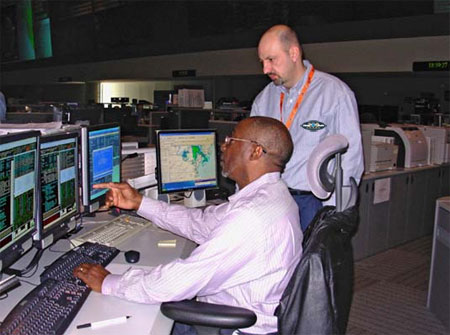
Tom Boyd (right background) and Al Williams (left foreground) work together to command a GOES satellite.
"The best advice I could give would be to stay involved in school," said Boyd. "Not just going to school but getting involved in school activities. My experiences throughout my school years helped prepare me for this job. These experiences involved lessons learned in and outside the classroom: lessons learned in team sports, the chess club and volunteer activities, to name a few. Having a passion for science, computers and math will go a long way in preparing to land a technical position, but that’s not everything. The best team members tend to be well-rounded with a variety of experiences."
